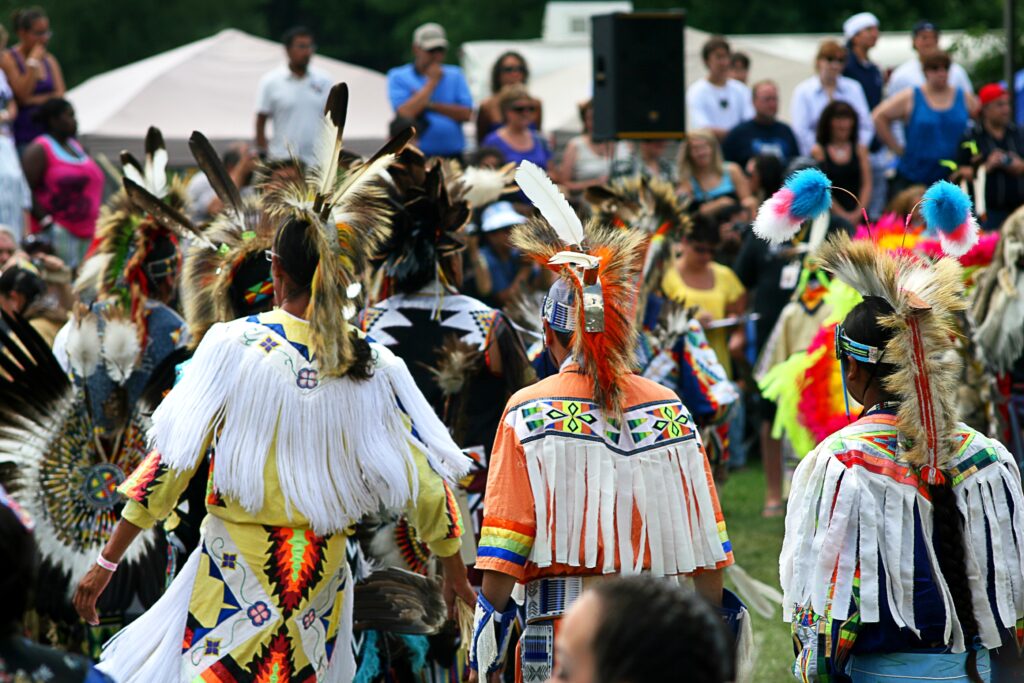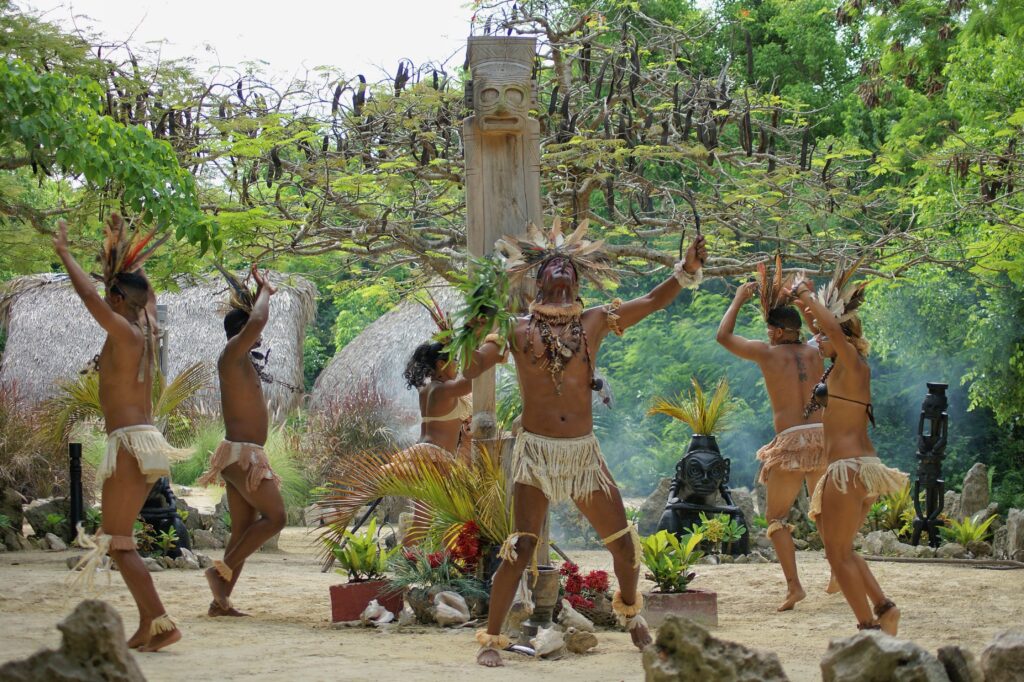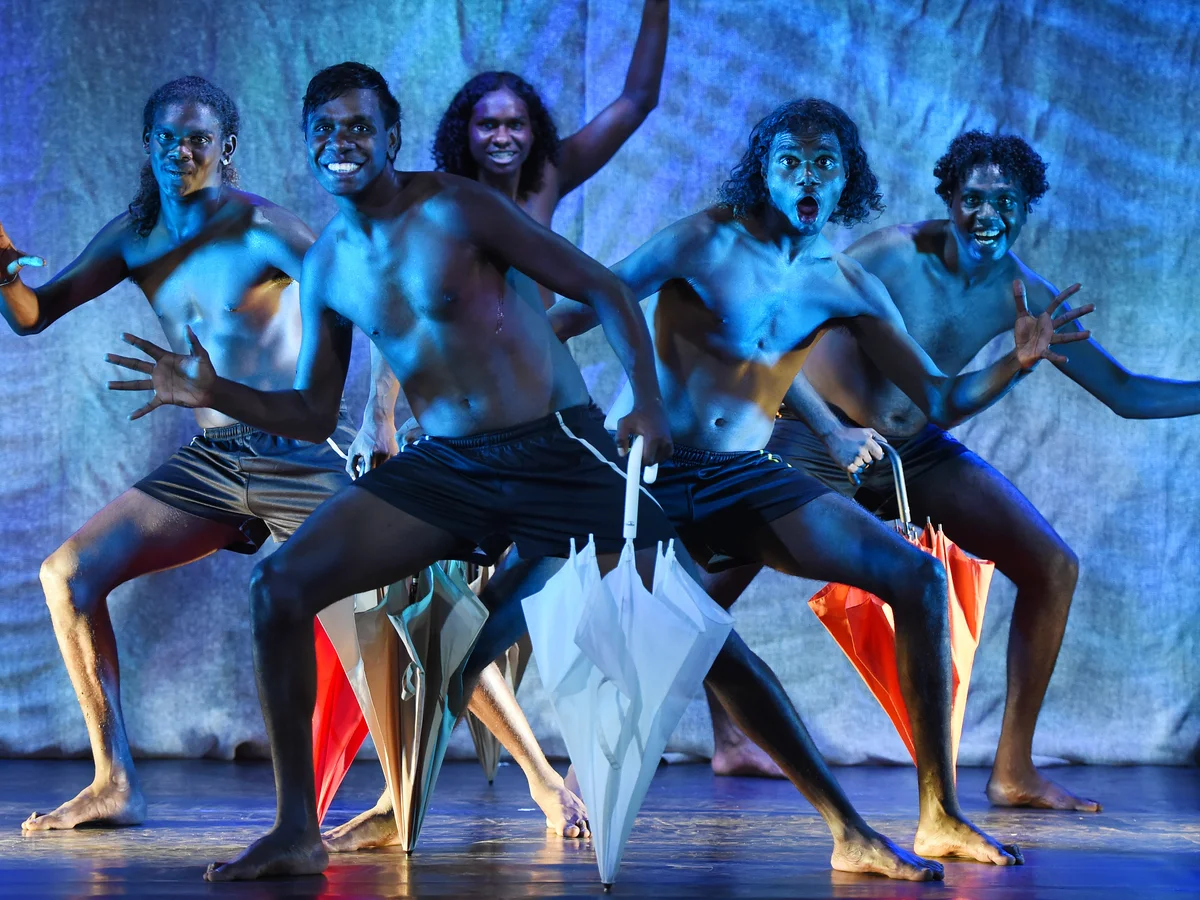Graduation is a big and special moment for any young person — a time to celebrate, look back, and think about the future. For Sasha Mulungunhaway Yambulul, this day became even more meaningful because of a wonderful act of love. Her grandfather, Gali Yalkarriwuy Gurruwiwi, traveled almost 2,000 miles across Australia just to be there and see her graduate.
What makes a man travel so far, and what special meaning does this moment have for their family and culture? As we learn more about Gali’s amazing trip, we discover the strong bond between a grandfather and his granddaughter, and how old traditions still matter in a world that’s changing fast.
The school’s way of teaching doesn’t just focus on books — it also helps students grow as people, learn important life skills, and feel proud of who they are. Sasha’s time at Worawa showed this balance well, as she learned both old Aboriginal traditions and skills to help her live in today’s world. She said, “Going to a boarding school like this actually made me feel even closer to my culture.”
Sasha’s graduation wasn’t just about finishing Year 10 — it showed that she could proudly live in both the modern world and her traditional culture. Her education meant more than school lessons; it proved that young Indigenous people can keep their traditions alive while also chasing new chances in today’s society.
Gali’s Journey and Its Cultural Significance

Gali’s long trip showed how important family and tradition are in Indigenous communities. Making such a big effort to be at Sasha’s graduation was a clear example of the strong values of love, respect, and dedication in their culture. In many Indigenous groups, elders like Gali are key figures who pass down stories, traditions, and cultural knowledge. As a leader and keeper of his people’s customs, Gali wanted to see his granddaughter follow a path that respected both her roots and her future goals.
His presence at the ceremony was a powerful reminder of how important it is to hold on to cultural traditions, even as the world around them changes. Gali, known around the world for his art and for sharing the Banumbirr tradition — a sacred part of the Galpu culture — spent his life protecting and teaching these customs. Even though he wasn’t feeling well, he made the trip and joined the graduation dance to show his deep commitment to keeping their culture alive and to inspire young people to be proud of who they are.
The Role of Tradition: Dances and Cultural Celebrations
At Sasha’s graduation, the traditional “Lunggurrma” dance played an important part in celebrating both her big achievement and her culture. “Lunggurrma,” which means “north wind,” is a special Yolngu dance performed with a feathered pole called the “Banumbirr,” or Morning Star pole. This dance is very meaningful for the Yolngu people because it shows the connection between the land and the spiritual world.
Sasha’s grandfather, Gali Yalkarriwuy Gurruwiwi, was well known for protecting and performing these old dances. Even though he felt sick on the day of Sasha’s graduation, he still danced with his granddaughters. His wife, Jane Garrutju, explained that Gali had always dreamed of dancing with them at their graduations — and that wish finally came true.
Dances like “Lunggurrma” aren’t just for show; they’re an important way to keep culture alive and teach younger people about their history and beliefs. These dances help the community stay connected to their land and traditions. The Banumbirr, used in this dance, stands for the Morning Star and is very important in Galpu culture. It carries messages between groups and connects people with the spirit world, keeping their stories and customs alive for the next generation.
Sasha’s Dreams: Honoring Her Culture While Embracing the Modern World

Sasha Mulungunhaway Yambulul is a young woman proud of her culture while also chasing her dreams for the future. After finishing school at Worawa Aboriginal College, she shared her plan to keep studying and complete years 11 and 12 at Clontarf Aboriginal College in Western Australia. Sasha hopes to become a nurse one day, so she can help people in both her home community on Elcho Island and in the city of Melbourne.
Even as she works toward her career goals, Sasha holds tightly to her cultural roots. She spoke about how much she loves traditional activities, saying, “I love hunting, finding oysters, fishing, searching for mangrove worms, and dancing our traditional dances, which we call bunggul. That’s what I miss, along with sitting around the fire and sharing stories.” For Sasha, these aren’t just pastimes — they’re an important part of who she is and where she comes from.
Sasha’s time at Worawa Aboriginal College helped her feel even closer to her culture. She said, “Going to a boarding school like this actually made me stronger in my culture.” The school’s special way of teaching mixed Indigenous culture with regular subjects, so Sasha learned not only about her own people but also about other Indigenous groups around Australia. She wants to keep learning and sharing her culture as she moves ahead.
Sasha also hopes to inspire other young Indigenous girls, showing them they can “try new things and become whatever they want” without giving up their culture. She wants to teach others about her traditions and stay involved in them, proving that holding on to culture while living in today’s world is both possible and rewarding. “I want to be a role model for younger girls and show them they can do great things and be happy,” Sasha said.
Keeping Traditions Alive While Living in Today’s World
- Use Education to Support Culture
Choose schools or programs that include cultural teachings, like Sasha’s experience at Worawa Aboriginal College. Encourage learning that respects Indigenous knowledge. -
Stay Connected to Traditions
Take part in community events, ceremonies, dancing, or storytelling. These keep your culture alive. Sasha loves dancing and sharing stories with her grandparents, which shows this well. -
Bring Culture into Daily Life
Do small things like cooking traditional food or speaking your native language at home. This helps you stay connected while living in today’s world. -
Find Role Models and Helpers
Look up to people who mix culture with modern success, like community leaders or family members such as Sasha’s grandfather, Gali, who keeps traditions alive through dance and art. - Pick Careers that Respect Culture
Think about jobs where you can help your community and keep cultural values, like Sasha, who wants to be a nurse and teach others about her culture. -
Use Modern Tools to Share Culture
Use the internet and social media to share stories, traditions, and culture. This helps keep culture alive for future generations and teaches others about it.
Standing Strong in Both Cultures

Sasha Mulungunhaway Yambulul’s story shows how holding on to your culture while chasing your dreams can create a happy and balanced life. Her grandfather, Gali Yalkarriwuy Gurruwiwi, traveling a long way to her graduation wasn’t just a loving act — it was a strong reminder of how important culture is in life.
Sasha’s focus on her schooling, along with her love for her cultural traditions, proves that you can be proud of both your past and your future. Her story encourages us to think about how knowing our roots helps us move forward, showing that culture and modern life can work well together.
By mixing traditions into everyday life, looking up to people who balance both worlds, and using education and modern tools to keep culture alive, young people can respect their heritage while confidently facing the future. Sasha’s journey teaches us that a meaningful life comes from bringing the past and present together, helping us be both who we are and who we want to be.


